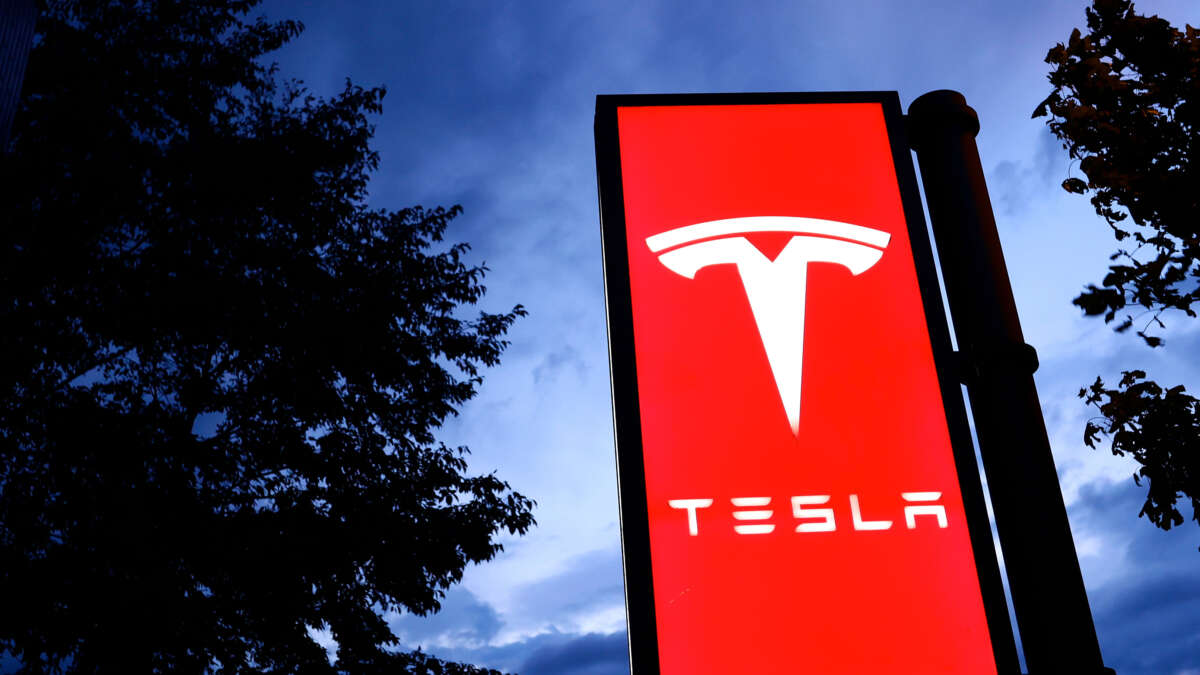Elon Musk’s Tesla paid a total of $0 in federal income taxes in 2024, new tax reports show, despite the company having raked in billions of dollars in income and being the most valuable car company in the world.
Citing Tesla’s year-end financial report released this week, the Institute on Taxation and Economic Policy (ITEP) reports that Tesla paid a 0 percent federal income tax rate last year, even as the company reported $2.3 billion in income.
In 2023, Tesla paid $48 million in taxes on $3.1 billion in income — a 1.5 percent rate. And, in 2022, when it reported $5.5 billion in income, Tesla also paid a 0 percent tax rate.
This brings Tesla’s average tax rate over the past three years to 0.4 percent, or 50 times less than the statutory corporate tax rate of 21 percent.
This is despite the fact that Tesla is valued at over $1.2 trillion and is owned by the richest man in the world, with a net worth of over $400 billion and who was awarded a $101 billion pay package by Tesla shareholders last year — though this package has been rejected by a judge.
Due to the nature of the U.S. tax system, which heavily favors corporations and the wealthy and enables sophisticated tax dodging methods, Musk is also one of the many ultrarich Americans who pay a far lower tax rate than the average American. Advocates for fairer taxation have said that, due to the way that tax law is written and enforced, it is essentially optional for Musk and other billionaires to follow tax guidelines, allowing them to hoard more and more wealth while the working class struggles to get by.
According to ITEP, Tesla was able to avoid paying $500 million in taxes by using accelerated depreciation, a tax avoidance method and incentive for businesses which allows companies to write off the costs of an asset faster than it would normally actually lose value. The company dodged another $300 million in its tax bill by claiming “unspecified ‘U.S. tax credits,’” ITEP said.
Companies’ ability to use accelerated depreciation as a tax avoidance method was expanded by Donald Trump and Republicans’ Tax Cuts and Jobs Act in 2017, which slashed the corporate tax rate from 35 to 21 percent and has supercharged the growth of the wealth gap in the U.S., creating an explosion of wealth for the richest Americans.
Trump and the GOP have pledged to be extremely friendly to corporations in Trump’s second term in office. The president campaigned on tax cuts across the board — but research has found that his tax plans would actually raise taxes for the working class while cutting taxes for the top 5 percent richest Americans.
Meanwhile, Republicans are reportedly circulating options to expand the already massive tax benefits given to corporations and the wealthy in the Tax Cuts and Jobs Act — options that include slashing benefits for working class Americans in order to cut the corporate tax rate to 15 percent. This could give massive corporations like Tesla yet more tax cuts.
ITEP points out that there are also bipartisan proposals to give corporations more tax dodging tools, like a compromise bill proposed in the Senate last year that would, among other things, retroactively give companies the ability to receive a tax break on supposed research — though the bill gives an extremely wide definition of what a company could qualify as research.
Angry, shocked, overwhelmed? Take action: Support independent media.
We’ve borne witness to a chaotic first few months in Trump’s presidency.
Over the last months, each executive order has delivered shock and bewilderment — a core part of a strategy to make the right-wing turn feel inevitable and overwhelming. But, as organizer Sandra Avalos implored us to remember in Truthout last November, “Together, we are more powerful than Trump.”
Indeed, the Trump administration is pushing through executive orders, but — as we’ve reported at Truthout — many are in legal limbo and face court challenges from unions and civil rights groups. Efforts to quash anti-racist teaching and DEI programs are stalled by education faculty, staff, and students refusing to comply. And communities across the country are coming together to raise the alarm on ICE raids, inform neighbors of their civil rights, and protect each other in moving shows of solidarity.
It will be a long fight ahead. And as nonprofit movement media, Truthout plans to be there documenting and uplifting resistance.
As we undertake this life-sustaining work, we appeal for your support. Please, if you find value in what we do, join our community of sustainers by making a monthly or one-time gift.
